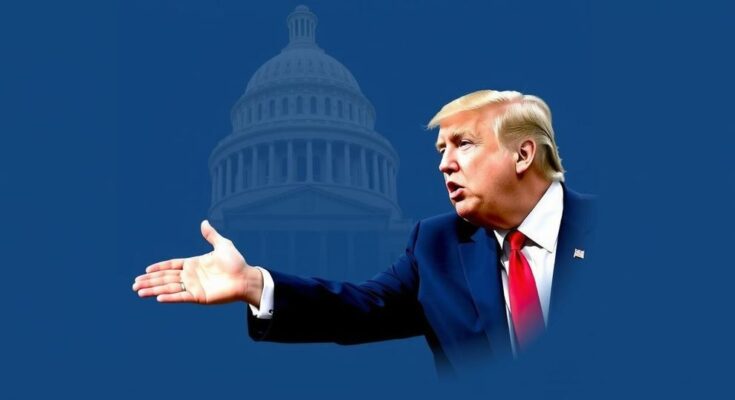House Republicans are reviving a controversial bill that empowers the Treasury to categorize nonprofits as terrorist organizations, threatening their tax-exempt status. Despite initial resistance from a majority of Democrats, the hearing for the bill is set, igniting fierce debates about free speech and potential political abuse under the Trump administration.
Tension looms over Capitol Hill as House Republicans push forward a contentious “nonprofit killer” bill, aiming to grant the Treasury Secretary sweeping powers to label nonprofits as “terrorist-supporting organizations.” Following a recent setback where 144 Democrats and a lone Republican managed to block the bill, the charge is on to bring it back for discussion in the Committee on Rules. The legislation, now scheduled for a hearing, has drawn widespread condemnation for its potential to suppress free speech, especially regarding support for Palestine, prompting vocal opposition from Arab American and Muslim organizations. Proponents of the bill claim it’s a necessary step to protect the U.S. from abuse by terrorist entities, but critics argue it is a thinly veiled attack on civil liberties. Although the bill nearly passed with a significant number of Democrats siding with Republicans, opponents like Rep. Lloyd Doggett remain steadfast in their commitment to dismantling the proposed legislation, denouncing it as a politically motivated attempt to expand Trump’s authority.
The debate surrounding H.R. 9495 and its implications reflects a polarized political climate in the United States, particularly regarding issues of free speech, civil liberties, and political retaliation. The bill’s designation power is feared to potentially weaponize the tax system against nonprofits that voice opposition to certain U.S. foreign policies, particularly concerning Israel and Palestine. Previous votes showcased a split within the Democratic Party, leading to concerns about the future of civil society and the freedom to organize and express dissenting views without fear of punitive measures.
As the Committee on Rules prepares to revisit the controversial nonprofit bill, the struggle between safeguarding civil liberties and the push for political power intensifies. Opponents vow to fight against what they deem an infringement on free speech, while advocates stress the necessity of the bill as a national security measure. The outcome remains uncertain, but the unfolding narrative illustrates stark divisions over the fundamental rights of citizens and organizations.
Original Source: theintercept.com



